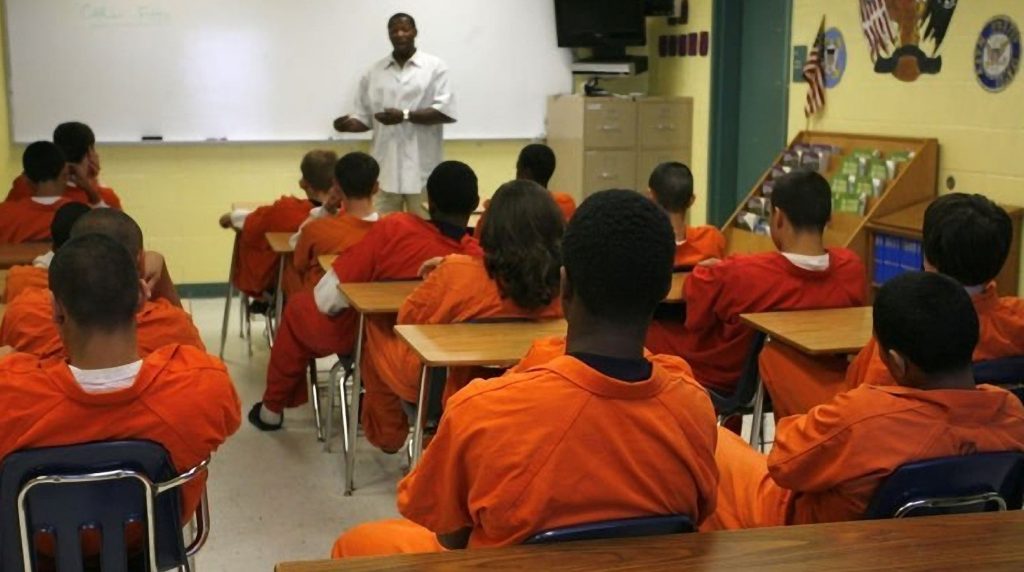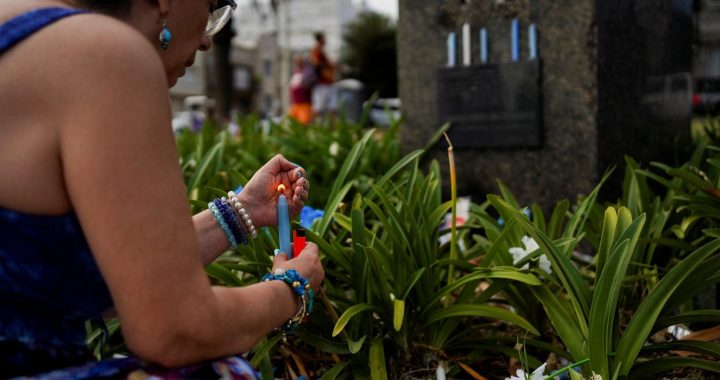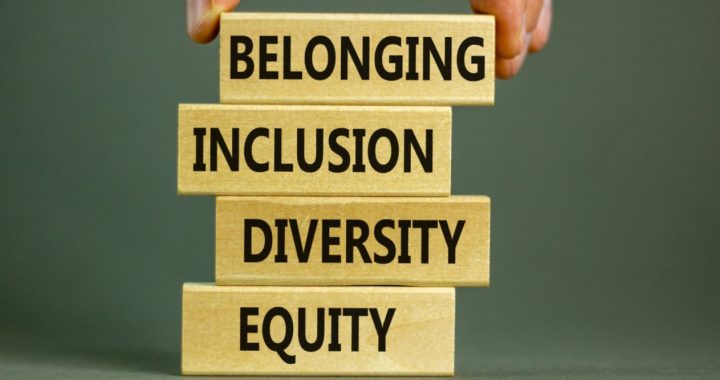
Black youth in prison - A report by the Southern Poverty Law Center found that Black students were suspended far more than white students after committing similar infractions. (Photo: Hulton Archive/Getty Images)
The pipeline to incarceration is alive and well for Black youth in Alabama
A report by the Southern Poverty Law Center found that Black students are suspended far more than white students in Alabama.
When Black kids are disciplined in Alabama schools, they face more suspensions and expulsions and as a result, are more likely to get locked up.
This is according to “Only Young Once: Alabama’s Overreliance on School Pushout and For-Profit Youth Incarceration,” a report by the Southern Poverty Law Center.
The report found that Black students (57%) were suspended far more than white students (38%) when committing similar infractions. Overall, a Black kid is suspended from an Alabama school every 15 minutes, which adds up to the sixth-highest suspension and expulsion rate in the country, according to the report.
With more suspensions and expulsions for Black kids, they’re more susceptible to ending up in the juvenile justice system, the study explained.
“Alabama has a long history of incarcerating Black children. For generations, the state has overly criminalized Black youth, pushing them out of school without due process and penalizing them more harshly than their white counterparts,” the report says. For skipping school, Black kids were suspended 51% of the time versus 27% for white kids. For theft, Black kids were suspended 60% of the time, while white kids were suspended 41% of the time.

“Our report shows that the state has a more punitive system that leads towards incarceration rather than keeping kids in schools and keeping them in their communities,” Delvin Davis, a senior policy analyst at the SPLC who wrote the study told theGrio. “We’re consistently seeing racial disparities across the board for incarcerated youths in the state. Black kids are more likely to be suspended and expelled from school.”
Alabama has the eighth-highest youth incarceration rate in the country, as of 2021. The report explains that it costs $161,694 a year to incarcerate a young person in an Alabama public facility and $120,450 for a private one. That’s compared to just $12,092 per student a year to educate a child and $20,075 per student a year to fund community-based programs. “It’s more expensive to incarcerate a kid than it is to care for a kid and provide for them,” Davis said.
For-profit youth facilities in Alabama have a reputation for abuse and taking measures to maximize their profits, the report explains. Earlier this year, state officials shut down Camp SAYLA, a Henry County youth detention center, after child abuse allegations.
Across the country, youth incarceration remains disproportionately higher for Black kids. According to the Sentencing Project, a research nonprofit working to address racial incarceration disparities, Black kids are 4.7 times more likely to be detained or sent to juvenile facilities than white kids.
The Sentencing Project reported that Black youths are more than three times more likely to be incarcerated when compared with their white counterparts. Using 2021 data, the incarceration rate for Black youth was 228 per 100,000 vs. 74 per 100,000 for white kids.
In Alabama, the report recommends major investments in decarceration. It also recommends that state officials create a one-state standard for schools to follow when disciplining students that would allow for due process that protects the children. The report also calls for the state to end the use of for-profit youth incarceration facilities.
“Once a kid is incarcerated, the likelihood that they’re going to drop out of school just skyrockets,” Davis said. “If you consider this school-to-prison pipeline starting at an early age, you have to disrupt this cycle at some point.”







